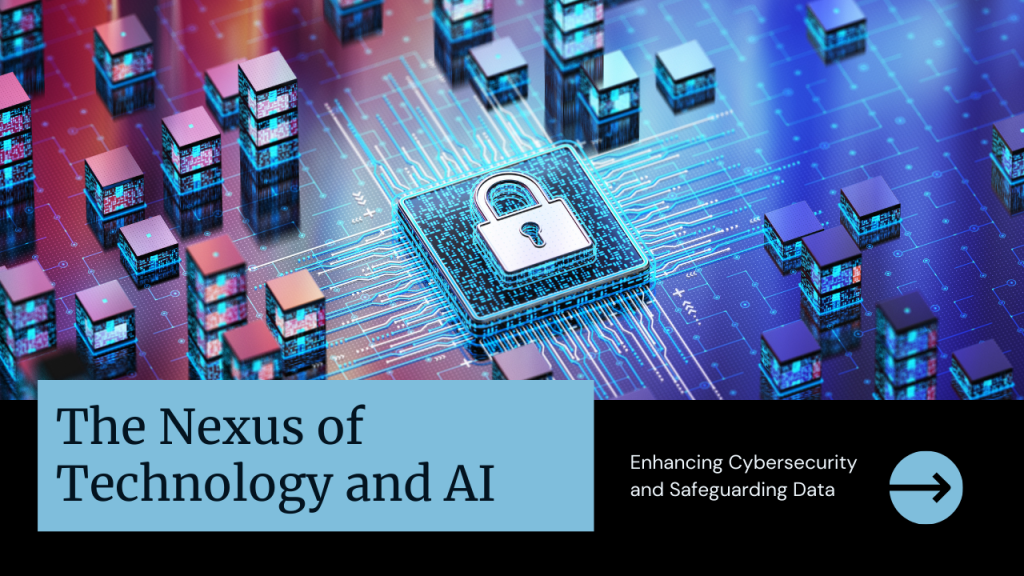The mutually beneficial relationship between cybersecurity and artificial intelligence (AI) has become increasingly important in protecting sensitive data and bolstering digital defenses in the quickly changing world of modern technology. The danger landscape grows in tandem with our increasing reliance on digital platforms and networked systems, thus creative solutions to reduce risks and safeguard vital information assets are required. A powerful toolkit of methods and strategies that can improve cybersecurity protocols and strengthen our society’s digital resilience is located at the intersection of technology and artificial intelligence.
AI’s capacity to enhance human capabilities by using machine learning algorithms to quickly identify, assess, and neutralize new threats is one of its most important contributions to cybersecurity. Conventional cybersecurity strategies frequently found it difficult to stay up with the ever-evolving strategies used by cyber adversaries. On the other hand, AI-powered systems are flexible and agile enough to recognize unusual patterns and behaviors that point to malicious activity, allowing for proactive threat mitigation and quick incident response.
Predictive analytics powered by AI also enables businesses to foresee possible weaknesses and proactively strengthen their defenses, which lowers the probability that successful hacks will occur.
The effectiveness of risk assessment and vulnerability management procedures can be improved by AI algorithms’ capacity to identify tiny correlations and patterns that may escape human analysts by utilizing enormous datasets and complex algorithms.
Furthermore, AI is crucial in enhancing the resilience of vital services and infrastructure against cyberattacks. Strong cybersecurity measures are essential since modern infrastructure is interconnected, spanning from power grids and banking systems to healthcare and transportation networks. Artificial intelligence (AI)-powered systems provide the automation and scalability needed to track large networks in real time, identify irregularities, and plan focused reactions to minimize possible interruptions or intrusions.
But even if integrating AI has a lot of potential to improve cybersecurity, there are ethical and legal issues that need to be carefully considered. The ethical and equitable use of technical developments is contingent upon the implementation of comprehensive governance frameworks and responsible AI practices, given the concerns surrounding data privacy, algorithmic bias, and autonomous decision-making.
In conclusion, the intersection of artificial intelligence and technology is a revolutionary force in cybersecurity, providing hitherto unseen chances to secure data, defend vital infrastructure, and bolster digital defenses against new threats. A new era of cybersecurity efficacy and resilience can be ushered in by enterprises utilizing AI-driven innovations to enhance their resilience against a dynamic and ever-changing threat landscape.


